I wrote this article in Japanese and translated it into English using ChatGPT. I also used ChatGPT to create the English article title. I did my best to correct any translation mistakes, but please let me know if you find any errors. By the way, I did not use ChatGPT when writing the Japanese article. The entire article was written from scratch by me, Saikawa Goto.
Introduction
Movies and books covered in this article

Three takeaways from this article
- To understand the limits of human beings and avoid mistakes hard to avoid, we should read this book.
- Most of our words and actions are controlled by something other than consciousness.
- Criminal acts are evidence of abnormal brain function and should not be blamed for responsibility.
Self-introduction article


Published Kindle books(Free on Kindle Unlimited)
“The genius Einstein: An easy-to-understand book about interesting science advances that is not too simple based on his life and discoveries: Theory of Relativity, Cosmology and Quantum Theory”
“Why is “lack of imagination” called “communication skills”?: Japanese-specific”negative” communication”
The quotes in the article were translated using ChatGPT from Japanese books, and are not direct quotes from the foreign language original books, even if they exist.
What Moves Us is “Something Other than Consciousness”, and There is No “Free Will” for Us
Reasons to Read This Book

This book is about the brain, specifically about “how ‘consciousness’ and ‘something other than consciousness’ are related to our activities”.

First of all, a note about the use of words. In this article, I use the term “something other than consciousness” instead of “unconsciousness”. Using the term “unconsciousness” might give the impression that we are able to be being aware of the existence of “unconsciousness”. However, the main argument of this book is that there is a “realm where it is impossible for us to be conscious”.
Therefore, I use the term “something other than consciousness” to describe this realm. It has a similar meaning to what is commonly understood as “unconsciousness”, but the crucial point is that we cannot be aware of its existence. Please keep this in mind.

In this book, we learn about “something other than consciousness” and how it controls our thoughts and actions. This is a truly astonishing fact.
Of course, we can only be conscious of “consciousness” (sorry for the weird phrasing, but I have no choice but to write that). So, we might feel like our thoughts and decisions are mostly controlled by our “consciousness.”
But in reality, that’s not the case. Most of our actions are actually controlled by “something other than consciousness.”
This book uses various examples to show this, and it’s important to read it to understand the limits of human capabilities.
I wrote about the same thing in a previous article about “The Invisible Gorilla (see article below).”

Humans do inevitable errors and that can create illusions, leading to wrong actions and words. The brain is also controlled by “something other than consciousness,” so we have very little control over what we can consciously control. It is just as well to say that there is an inevitable error.
Many people think they can control their words and actions with their own will, but neuroscience research has shown that this is not the case. Understanding the fateful errors that humanity has inherited is important in order to avoid mistakes as much as possible.
Read this book to understand where the limits of human capability lie.

How have Humans Come to Understand the Existence of “Something Other Than Consciousness”?
Throughout history, humanity has tried to understand itself through religion and philosophy. After that, with the development of science, the brain, which produces thoughts, has also become an object of study.

As suggested by sayings such as “Cogito, ergo sum” and “Man is a thinking reed,” we humans have become unique beings through “thinking.” And since it is the brain that produces this “thinking,” understanding the brain properly should lead to a better understanding of ourselves.

However, that is not the case at all.
In other word, it means that most of what we do, think, and feel is not under the control of our consciousness. The vast jungle of neurons executes its own program. The conscious you – the me that comes to life when you wake up in the morning – is only a small fragment of what is occurring in your brain. While the inner world of a person is influenced by brain function, the brain acts independently. Consciousness has no access to most of its operations. It means that “I” have no right to enter.

It is clearly written that “most of what we do, think, and feel is not under the control of our consciousness.”
In other words, it can be summarized as follows. the brain produces both “consciousness” and “something other than consciousness,” but only a small portion of the areas involve “consciousness.” Most of the brain’s functions are controlled by “something other than consciousness,” and we do not have access to that “something other than consciousness.” If we cannot understand “something other than consciousness,” then we will not be able to understand most of the brain.
In other words, it means that we cannot understand the brain.

This can be explained using an example of a hotel. When we reserve a hotel room, we can use our own room as well as shared spaces like the bathroom, dining area, and lobby. However, we cannot enter other people’s rooms and we have no idea who is in there or what they are doing.
The “brain” is similar to this hotel. Our reserved room and the shared spaces represent “consciousness”, while all the other rooms that we cannot enter represent “something other than consciousness”. Just like how we cannot access most places in the hotel, “consciousness” does not have access to most areas in the brain.
By the mid-20th century, philosophers came to the right realization that we human hardly know ourselves. We are not at the center of ourselves but are on the far edge of ourselves, just like the earth in the galaxy system and the galaxy system in the universe, and we know very little about what is going on.
Although it may be hard to imagine, this is how modern science thinks.
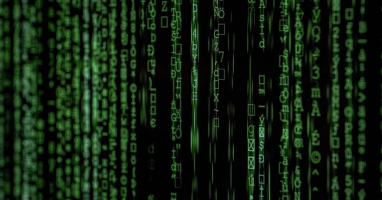
Try Feeling the Existence of “Something Other Than Consciousness”
Now, let’s give a specific example to feel the existence of “something other than consciousness”.
I haven’t been driving for years, but if you’re someone who drives, you might sense danger and suddenly step on the brakes. For example, if a child suddenly runs out in front of you, you will be supposed to instinctively hit the brakes.

Now, let’s reflect a bit on your actions in this situation. How did you come to the action of “suddenly hitting the brakes”?

When we take some action, we would basically “consciousness” that we are going to do something and then do it. However, when we brake suddenly, are we doing that? Do we “consciously” think, “A child has jumped out and it is dangerous,” and then think, “I have to brake suddenly,” before stepping on the brake?
I feel it can’t be. In such a case, the foot would have moved and the brake would have been pressed before the thought of “I have to brake suddenly” occurred in the mind.
This is not the work of “consciousness” because the “action” occurs before the “thought.” If this is the case, we can only assume that “something else than consciousness” is involved.

Or, it is known the following experiment to have verified a more familiar matter.
Participants were told to raise their finger whenever they felt like it. Electrodes were attached to their brains, and they could see the measurement of their brain activity. Then, they were asked to report the numerical value of the moment they thought “I’ll move my finger.” In other words, they tried to measure the timing they thought about moving their finger and the actual timing they moved it simultaneously.
As expected, the result was that they moved their finger after they thought about moving it. They moved their finger a quarter of a second after thinking about it.
Now here’s the interesting part. The experimenters also measured the participants’ brain waves at the same time. They wanted to find out “when the brain activity for moving the finger occurs.” As a result, they found out that “the brain activity for moving the finger occurred before they thought about moving it.”

In other words, the order of events is: “brain activity for moving the finger occurs (something other than consciousness)” → “thinking about moving the finger (conscious)” → “actually moving the finger (action).” This means that something other than our consciousness decides to move our finger before we even think about it.
It may be hard to believe, but I can only have you believe. I also have read about such an experiment in another book, and it seems to have been repeatedly verified.
If we accept the results of this experiment, it means that we have no “free will.” And modern science has already concluded that there is no such thing as “free will” in human beings.
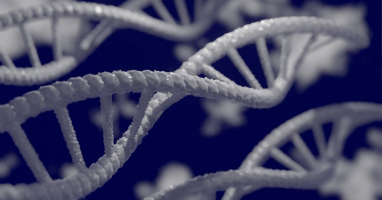
The actions and words we think we are doing by our own will are actually not created by our consciousness. So, it can be said that they are not done by our own will.
Why is “Something Other Than Consciousness” So Powerful?
Science has shown that “something other than consciousness” is more important than “consciousness,” but why has it evolved that way? The book states the following.

Most of what happens inside you is not under the control of your consciousness. And in fact, that’s a good thing. Consciousness can claim all the credit it wants, but when it comes to decision-making that starts in the brain, it’s best to passively observe for the most part. When consciousness interferes with the details that it doesn’t understand, the efficiency of the activity decreases. It means that if you start thinking carefully about where your fingers will jump on the piano keyboard, you won’t be able to play the piece well.

The reason why we cannot access these programs is not because they are unimportant, but because they are extremely important. Even if consciousness interferes, nothing will be good.

For example, when you were a child, you were supposed to probably practice riding a bicycle. At first, you couldn’t ride it well and kept making mistakes, but as you got better, you should have stopped being aware of “how you were riding the bike.” This is actually better for us. Things that you can’t do without being conscious of them become things you can do without being conscious, making them more efficient. In fact, sometimes, trying to be conscious of “how you are doing it” can make it difficult to understand how to do it.
Even though “something other than consciousness” has a complex program that enables us to ride a bike without thinking, “consciousness” doesn’t know the details. It doesn’t need to know and it’s better not to know. It’s because of this mechanism that humans could have done more and more complex things.
It would be a famous story, but this book also introduces the example of “chick sexer”.

It is said that distinguishing between male and female chicks is very difficult, but a Japanese person developed a technique called “vent sexing (the way to check the chick’s anal vent)” which made it possible to do it accurately, and people all over the world are learning it.
However, strangely enough, there doesn’t seem to be anyone who can teach this “vent sexing”. You wouldn’t understand.
Professional sexers can distinguish between male and female chicks by looking at their anus. However, they can’t explain exactly what part of the anus they are looking at and how they are making the judgement. They can just tell whether it’s male or female by looking at it.
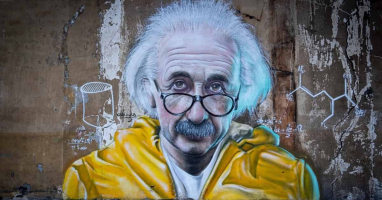
So, the only way to teach “vent sexing” is through practical training. The mentor stands behind the trainees and lets them do the actual sex identification. And as the mentor identifies correct and incorrect answers, the trainee gradually learns to tell the difference between males and females.
Isn’t that strange? No one can explain in words the difference between male and female chicks. This means that “consciousness” cannot understand the difference. However, since people can actually distinguish between males and females, it can only be assumed that “something other than consciousness” is sensing and distinguishing the difference.
In this way, “something else than consciousness” transcends “consciousness,” enabling complex things to be done.

Negative Effects of the Strength of “Something Other Than Consciousness”
Moreover, it is said that the fact that our behavior is controlled by “something other than consciousness” makes the development of AI hinder.
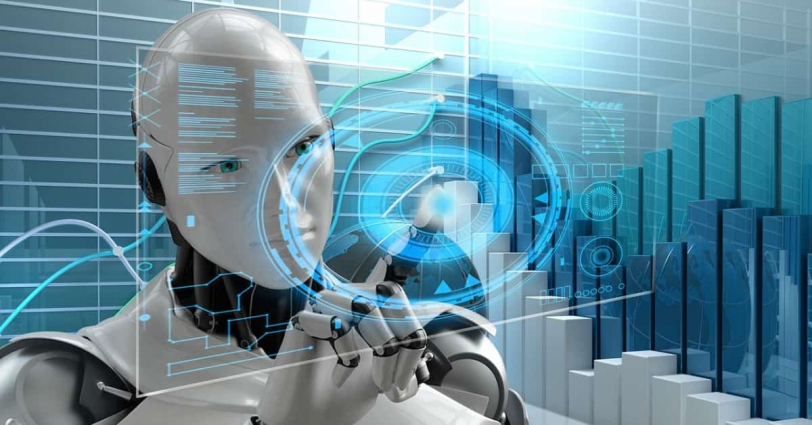
We can do things like “recognizing a friend”, “remembering the location of a favorite bar”, and “balancing an upright body on small feet” without being “consciousness”. This is because “something other than consciousness” has programmed those to be done automatically. And “consciousness” cannot access that complex program.

In other words, we don’t understand how we achieve things like that, and because we don’t understand it, teaching it to AI is also difficult.
As for AI, there is also a difficult problem known as the “frame problem.” This is the problem of difficulty of picking up only the relevant information and facts related to what you are about to do. I won’t go into detail here, but this is probably related to “something other than consciousness.”
In addition, this book includes an example of a patient called “G lady.” She is a woman who has suffered damage to a certain part of her brain.

She sometimes finds herself in these strange situations.
G Lady was asked to sit in front of a mirror and instructed to “close both eyes.” However, she didn’t exactly follow the instructions and kept one eye open while closing the other. Nonetheless, she believed she had followed the instructions and closed both eyes.
Then the following exchange took place:
“Are both of your eyes closed?”
“Yes.”
“Can you see yourself?”
“Yes.”
I said calmly, “When both of your eyes are closed, do you think you can see yourself in the mirror?”
Silence. No conclusion was reached.
“Do you appear to be closing one eye, or both eyes?”
Silence. No conclusion was reached.
G Lady’s responses were not normal, but she was never lying. So what is happening inside her?
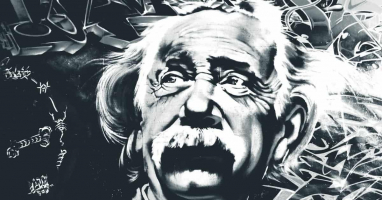
Usually, the “brain” selects a “reality without contradictions” in the process of processing “several conflicting information” by comparing information and arbitrating. This mechanism is not driven by “consciousness” but by “something other than consciousness.”
However, in G lady’s “brain,” this arbitration system is not functioning properly. Therefore, conflicting information such as “closing both eyes (which she thinks she can do)” and “seeing herself in the mirror (while closing both eyes)” are not rightly processed, and she cannot perceive reality correctly, which leads to silence.
G lady is not lying. The arbitration system that should normally work is simply not functioning in her brain.
From the example of this woman who has suffered damage to a specific part of her brain, we can understand what “something other than consciousness” usually does and how inconvenient it is without it.

Considering the Reality that We are Controlled by “Something Other Than Consciousness,” How Should Criminals be Treated?
This book is essentially a scientific essay, but the section on “how to treat criminals,” which occupies most of the latter half, deals with issues that raise social problems. I think there are pros and cons to the author’s argument, but I felt that it was a perspective that should not be ignored and should be discussed.
The author’s fundamental argument is this.

What I want to say is that, no matter what the circumstances, criminals should be treated as people who could not choose any other behavior. Regardless of whether or not current measurable problems can be identified, the act of committing a crime itself should be considered evidence of abnormality in the brain.

Let me elaborate on the “regardless of whether or not current measurable problems can be identified” part. I think it’s much the same in every country, but there are procedures such as “psychiatric evaluations” that exist to determine whether or not a person is capable of being held responsible. Essentially, this procedure makes a judgement like that “this person has a (brain) disorder and is not suitable for criminal punishment.”

He then mentions the criterion for determining whether a person has brain damage as “whether or not a measurable problem can be pointed out.” I do not know what procedures are used in the field of psychiatric evaluation, but it is likely that there are some standards, and judgments are made in accordance with them. However, these “standards” should change with improvements in measurement techniques and new findings in medicine. In other words, it means that even if it cannot be pointed out now, it may be judged as a “disability” by the technology of 100 years from now.
In this sense, the author is saying that “regardless of whether or not current measurable problems can be identified.” And he insists on that all criminals should “be judged to have abnormalities in the brain based on the fact that they committed a crime,” instead of determining individual responsibility for the presence or absence of disabilities.

The author also wrote as follows:
Therefore, it is believed that it is wrong to question culpability.
Many people may find this argument hard to accept. Even now, there would be quite a few people who feel something uneasy about being judged as having no culpability in a psychiatric evaluation. The author expands this to insist on that “since all criminals have abnormalities in their brains, it is a mistake to hold them responsible.” It’ would be a pretty radical opinion, to say the least.

However, knowing the author’s suggestion for how to deal with criminals may change your impression a little.
The right question is this: what do we do with accused criminals? The brain pulled out in front of the judge may have an incredibly complicated past, but ultimately, what we want to know is only what actions a person is likely to take in the future.
Don’t you feel that this viewpoint is certainly correct?
We have become accustomed to thinking that “punishing past criminal acts” is a matter of course, but what is really important is whether “the criminal will commit another crime.” Simply isolating and punishing the criminal will not change their “brain.”

If “criminal behavior” is evidence of an “abnormal brain,” then we should consider “brain correction” for criminals. The argument that “it would be beneficial for society to transform criminals into individuals with ‘brains’ that will not engage in criminal behavior in the future” would be convincing.
Of course, it’s easier said than done. It is unclear whether it is truly possible to “correct the brain properly,” and as the author points out, we cannot ignore the feelings of citizens. Emotions such as “unforgivable” and “deserving punishment” inevitably arise when it comes to criminals, and it would not be able to just ignore that and attribute it to “brain function” alone.
However, logically speaking, it would have a greater positive effect on society to “transform the ‘brain’ to never commit crimes again” rather than “punishing criminals.” This would also be an approach that could greatly transform society through the knowledge of “neuroscience.” Although it seems unlikely to be realized, I found the idea to be extremely interesting.
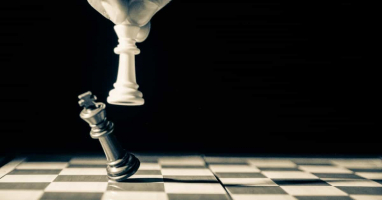
Conclusion
Unfortunately, as our understanding of “something other than consciousness” deepens, it has becomes clear that humans do not have things like “free will.” This fact would make us feel sad, somehow. Because what we thought was our “will” is strictly speaking only a judgment of “something else than consciousness.”
However, on the other hand, by reading this book, due to that humans have been building a system that entrusts most of our decisions and choices to “something other than consciousness,” we can also realize that it enables us to engage in human-like activities.

The question “What is human?” was originally in the realm of philosophy, but with increased knowledge about the mysterious organ called the “brain,” it has moved into the realm of science. How far can science go in cutting into “something other than consciousness” that we cannot consciously perceive?

Published Kindle books(Free on Kindle Unlimited)
“The genius Einstein: An easy-to-understand book about interesting science advances that is not too simple based on his life and discoveries: Theory of Relativity, Cosmology and Quantum Theory”
“Why is “lack of imagination” called “communication skills”?: Japanese-specific”negative” communication”







コメント